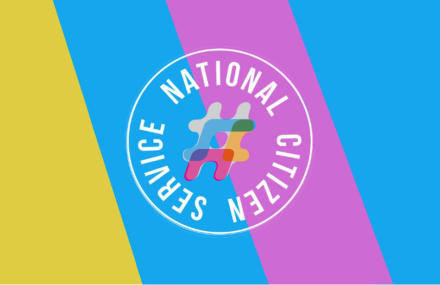The government is becoming "enthralled" with the charities delivering the National Citizen Service in the same way as it was with Kids Company, and risks similar outcomes, the House of Lords was warned yesterday.
Speaking in a debate during the second reading of the NCS Bill in the House of Lords yesterday, Baroness Barker, a Liberal Democrat life peer, questioned the “exceptional, favourable terms” that the NCS and its delivery partner, The Challenge Network, find themselves in with regard to their being “wholly dependent on central government funding”.
The National Citizen Service is a youth volunteering scheme which offers six-week placements for 16 and 17-year-olds. The government has committed to offer places to anyone of that age who wants them, at a likely cost of over £400m a year.
The bill is designed to put the relationship between Parliament and the NCS bodies on a statutory footing. But Barker drew possible parallels between NCS charities and other failed organisations which were dependent on central government, in particular Kids Company.
“We have seen what happens when Government become enthralled by a particular organisation, such as Kids Company or A4e,” said Barker. “When £1 billion is at stake we really should not allow such a mistake to happen again”.
Barker said the NCS lacked transparency and that its proposed legal model was "cumbersome".
She asked what the NCS's income, rough expenditure and level of free reserves were at the time of its last audit.
“I have not been able to find the audited accounts of the National Citizen Service," she said. "I am sure they exist but they are not available on the organisation’s website. Will the minister ensure that a copy is available to members of your Lordships’ House along with the organisation’s annual report?”
She said that given that other “charities and voluntary organisation are under great pressure to prove their efficacy and efficiency,” then it should only be right and proper that the NCS and its delivery partner should be held to the same standards.
Royal charter 'cumbersome and dificult'
Barker also questioned the government’s decision to make the NCS a royal charter body. She called chartered status bodies “cumbersome” and difficult to manage, given that any change in governing documents needs to be approved by the Privy Council.
“It is intriguing that the government have chosen the most cumbersome governing structure possible. Other royal charter bodies often talk about just how difficult it is to make even minor changes to their governing documents because they have to get Privy Council approval.
“No doubt, the Minister will say that the government are doing a belt-and-braces job. It looks a lot more like belt-and-braces and a load of cement.”
Lord Hodgson of Astley Abbotts also questioned the government’s decision to make the NCS a royal chartered body. He said that during his review of the 2006 Charities Act in 2012, he “received a great deal of evidence about the clumsiness and inflexibility of the royal charter structure”.
He said the “essence of the problem” around chartered status charities lies in “the interlocking authority of Her Majesty in Council, the Privy Council itself and the Charity Commission. The evidence I received suggested that each of these is disinclined to act without the agreement of the other two, which has resulted in a very protracted process of inquiry and investigation, often with voluminous correspondence, about even quite small changes to a charter and by-laws”.
He suggested that a better structure for the NCS might lie in a CIC arrangement, or as an “exempt charity” regulated by another department separate from the Charity Commission.
NAO investigating NCS over value for money
This month, the National Audit Office also confirmed it was looking into the value for money being provided by the NCS.
The statement said the study will set out whether or not the Cabinet Office is achieving its stated aims set out in the 2015 Spending Review, and delivering value for money. In the Autumn Statement last year, the government announced it would expand the NCS from 80,000 places to 300,000 by 2020, at the cost of over £1bn.
The NCS has consistently failed to hit its participation targets since it first launched in 2011.
The NAO statement called for evidence, and said it will produce a report by the end of the year.
Related Articles












